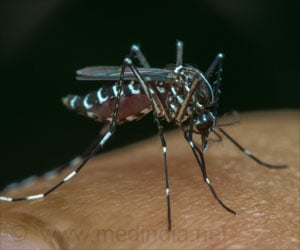Italy's health authorities said Wednesday they had recorded more than 160 cases of the mosquito-borne chikungunya virus, in what one expert said could be the first outbreak outside the tropics.
Italy's health authorities said Wednesday they had recorded more than 160 cases of the mosquito-borne chikungunya virus, in what one expert said could be the first outbreak outside the tropics.
"We have about 160 confirmed cases of chikungunya in the Ravenna region" in northern Italy "and about 30 in neighbouring villages", Professor Antonio Cassone, head of infectious diseases at the National Institute for Health, told AFP.Cassone said the outbreak was caused by a foreigner who brought it to Italy,
A report from Italy's ANSA news agency said the person who had travelled in India visited friends in the region without realising he was infected, and mosquitos had spread it further.
Health ministry officials told their European counterparts last week there had been more than 100 cases and advised travellers to protect themselves against mosquito bites.
Professor Antoine Flahault, who coordinates French research on chikungunya, said the Italian outbreak was a "world first" outside the tropics.
Writing in the Quotidien du Medecin journal, he said the extension of the virus beyond its Indian Ocean origins was "worrying without being alarming", noting that other so-called tropical diseases had spread across the world.
Advertisement
"The mosquito vectors (carriers) of this disease have been in Italy for several years. All we know is that increased temperatures and humidity make the climate more tropical and favour the proliferation of mosquitoes," he said.
The virologist said the situation in Ravenne was under control and measures had been taken to reduce the number of mosquitoes.
Chikungunya gets its name from a Swahili word meaning "that which bends up" because of the arthritic-type symptoms that leave victims stooped.
Also causing fever, headaches and muscle pain, it has traditionally been present in eastern Africa, southeast Asia and the Indian subcontinent. Most patients eventually recover.
Source-AFP
LIN/J






